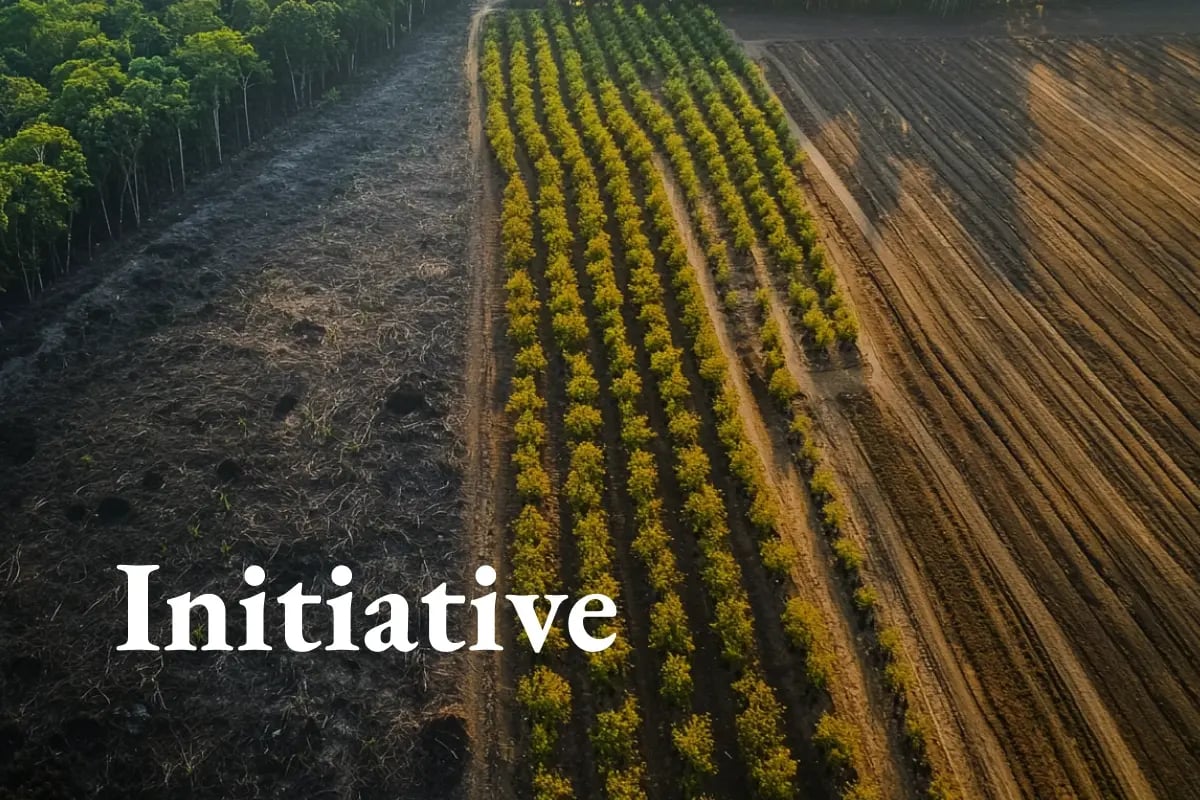A coalition of 30 institutional investors controlling over $3 trillion in assets is demanding urgent policy measures to halt deforestation and ecosystem loss by 2030, warning that the world’s economies face mounting financial risks from unchecked nature degradation.
 A young tree in the foreground with deforested land in the background. AI-generated picture.
A young tree in the foreground with deforested land in the background. AI-generated picture.
The call, made through the Belém Investor Statement on Rainforests, comes ahead of the UN COP conference in Brazil. Among the signatories are major players such as Pictet Group and DNB Asset Management. ‘As investors, we are increasingly concerned about the material financial risks that tropical deforestation and nature loss pose to our portfolios’, the coalition said. ‘Without stable natural systems, the global economy itself becomes unstable.’
Recent data shows deforestation is accelerating: in 2024, the planet lost an estimated 8.1 million hectares of forest—an area the size of England—largely due to agricultural expansion and wildfires. The environmental toll now directly translates into financial exposure. ‘Deforestation undermines the natural systems that global markets rely on—from climate regulation to food and water security’, said Jan Erik Saugestad, CEO of Storebrand Asset Management.
The investor group is urging governments to establish stronger deforestation-free supply chains, enforce transparent land-use governance, and offer incentives for conservation. Their push follows frustration over regulatory delays, including the EU’s one-year postponement of its anti-deforestation law amid resistance from major trade partners.
Read more: What business leaders need to know before buying carbon offsets
Meanwhile, shifting political winds in the United States have added to uncertainty. ‘I think Trump has made it more difficult for investors and managers to take climate and biodiversity into account in such a volatile market’, said Ingrid Tungen, Head of Deforestation-Free Markets at Rainforest Foundation Norway.
The Belém statement argues that safeguarding forests is not just an ethical responsibility but a financial imperative. ‘All the investors we speak to recognise the huge risk of failing to act on deforestation’, said Tungen. ‘It’s not just about morals. Ignoring this crisis will harm the markets directly—and their profits directly.’
As the Brazil COP approaches, deforestation is set to take a central place alongside the energy transition and carbon markets. For policymakers and businesses alike, the message is clear: protecting forests is now a cornerstone of financial stability—and a test of market resilience.
Read more: Italy launches national carbon credit registry to safeguard forests
As global investors push governments to align economic stability with forest protection, one message stands out—nature is a financial asset worth safeguarding. The growing momentum for deforestation-free supply chains and nature-positive investments mirrors what we do at Green Earth: designing and developing large-scale, nature-based carbon projects that restore ecosystems, protect biodiversity, and generate verified carbon units. Through our projects, companies can align with this global investor movement—transforming environmental commitment into measurable, enduring impact.


